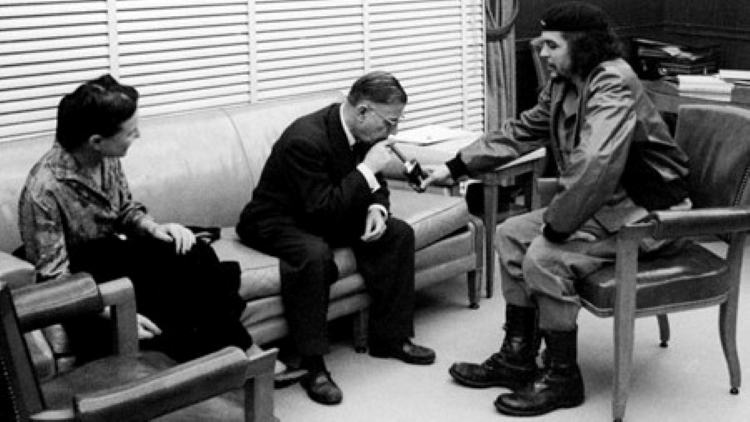Sartre and Beauvoir in Cuba

The activists: Simone de Beauvoir (left) and Jean-Paul Sartre (centre) met with Che Guevara (right) in 1960.
In 1960 Jean-Paul Sartre and Simone de Beauvoir visited Cuba, where they toured the island with Fidel Castro and met with Che Guevara, to report on the ongoing revolution (pictured).
Sartre and Beauvoir believed that all societies were best understood as arenas of struggle, between powerful and powerless groups. To oppress another, they claimed, is to attempt to validate one’s sense of self by denying the other their freedom—something, in whatever context, they vehemently opposed.
Somewhat confusingly, though, despite his disposition towards Marxism and anarchism, Sartre claimed that he never accepted any particular power over him: that he was a ‘traveller without a ticket’.
More clearly, however, Sartre’s political dispositions and his distaste for oppression led him to support and condemn the revolution and the regime of Cuba in equal measure.
